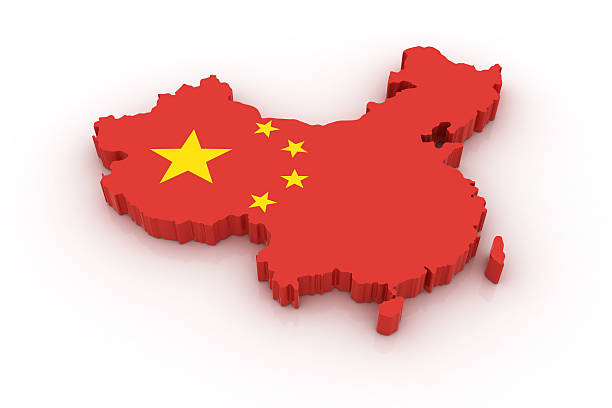The Role of Peacefulness of Chinese Civilization in Achieving SDGs
We are just six years ahead of achieving the Sustainable Development Goals (SDGs) where SDG 16- ‘Promote peaceful and inclusive societies for sustainable development, provide access to justice for all and build effective, accountable and inclusive institutions at all levels’ is still one of the critical challenges among other goals in the world. Today’s China is home to about one-fifth of the world’s population, and the government is committed to enhancing the quality of life of its people. We know China is a country with a long history and ancient civilization. Over the past centuries, it has created an extensive, profound culture and varied, colorful cultural heritage. In the modernization process, China has emerged as a global leader in advocating for SDGs, world peace, and sustainability, where the current leadership of President Xi Jinping matters. On June 2, 2023, President Xi highlighted at a high-profile meeting on cultural inheritance and development that there are five prominent features- ‘Classics of Chinese Thought’ or attributes of Chinese civilization -consistency, originality, uniformity, inclusivity, and peaceful nature. The ‘Classics of Chinese Thought’ provides insights into China’s cultural heritage. In this write-up, I would like to emphasize the role of the peacefulness of Chinese civilization and the promotion of peaceful competition among civilizations, as advocated by President Xi. Later, I will address the relationship of the culture of peace to SDGs and the university’s role in promoting the culture of peace.
The Peaceful Nature of Chinese Civilization: President Xi’s pursuit of peace and harmony is deeply rooted in the spiritual world of the Chinese nation. This can be seen everywhere from the Confucian idea that “a gentleman should seek harmony in diversity and should not do to others what he would not like himself.” He argued that the peaceful nature of Chinese civilization determines that China will continue to build world peace, contribute to global development, and safeguard the international order. The peaceful nature of Chinese civilization determines that China will continue to pursue exchanges and mutual learning among civilizations rather than cultural hegemony. It also specifies that China will not impose its values and political system on others. In contrast, China has followed a path of peaceful development, leaving no evidence of colonization or aggression against any other country. It is China’s pursuit to champion cooperation over confrontation. China always insists on non-confrontation, non-conflict, mutual respect, cooperation, and mutual benefit.
Culture of Peace and Its Relation to SDGs
According to the United Nations General Assembly, a ‘Culture of Peace’ is a “set of values, attitudes, modes of behavior and ways of life that reject violence and prevent conflicts by tackling their root causes to solve problems through dialogue and negotiation among individuals’ groups and nations.” The UNESCO group argued a culture of peace should be based on education for nonviolence, gender equality, tolerance among peoples, democratic participation, open communication, human rights, international peace and security, and sustainable development. In this context, fulfilling SDG 16 of the 2030 Agenda- ‘building peaceful, just and inclusive societies’ is more imperative now than ever. For that, dialogue, tolerance, diversity, and respect under an international umbrella of sincere cooperation from state and non-state actors, including universities, are essential locally and globally.
Role of Universities in Promoting the Culture of Peace
Knowledge and awareness in shaping insights, attitudes, and peaceful behavior, a university’s role is to promote a culture of peace. Only a university can encourage a culture of peace through its functions (education, research, and social responsibility) and plays a critical role. And only education is for a Culture of Peace, and it ensures coexistence. Education is a vital and fundamental tool required to achieve social change, especially regarding social cohesion and coexistence. Education affects our most critical issues, including creating various forms of violence, environmental degradation, and the destruction of cultures. It should teach individuals and groups respect for others with whom they interact locally and globally. Educational approaches that encourage a culture of responsible, participatory, and creative coexistence. Promoting a culture of peace has become a significant concern for all in the current complicated situation that needs a peaceful environment.
In this respect, Chinese universities have shared the same orientations, integrating tradition and modernity. The universities play an essential role as a knowledge lighthouse for promoting and advocating a culture of peace. The universities have already played a vital part in modern Chinese history; when China was going through a rapid transformation, the university led movements for a new era in Chinese educational, cultural, and political life. As an alumnus of Peking University today, I must be a responsible global citizen advocating peaceful development and a harmonious world. Therefore, I have written this piece.
Finally, I would like to conclude that President Xi’s advocacy of the consistent, original, inclusive, unified, and peaceful nature of Chinese civilization inspires global cultural exchanges and cooperation, promoting understanding and mutual respect among diverse societies. As China continues to influence the world stage, its initiatives for global peace reflect a sense of responsibility and a commitment to fostering a prosperous and harmonious world, which also matters to achieving the SDGs by 2030 and beyond.
About the writer
Mohammad Mainul Islam is a citizen of Bangladesh, and I currently hold the post of Professor (previously Chairman) in the Department of Population Sciences at the University of Dhaka in Bangladesh. He did his ph.D.in from the Institute of Population Research at Peking University, where he received the First Prize of Academic Excellence Award. His story has been placed in the book- Yan Yuan Liu Yun: PKU International Students by Peking University Press (2013), which takes the historical development of China’s education program for international students as the main line, traces the development of international students’ higher education since the 1950s and exhibits the spirit features reflected by generations of prominent international alums.

